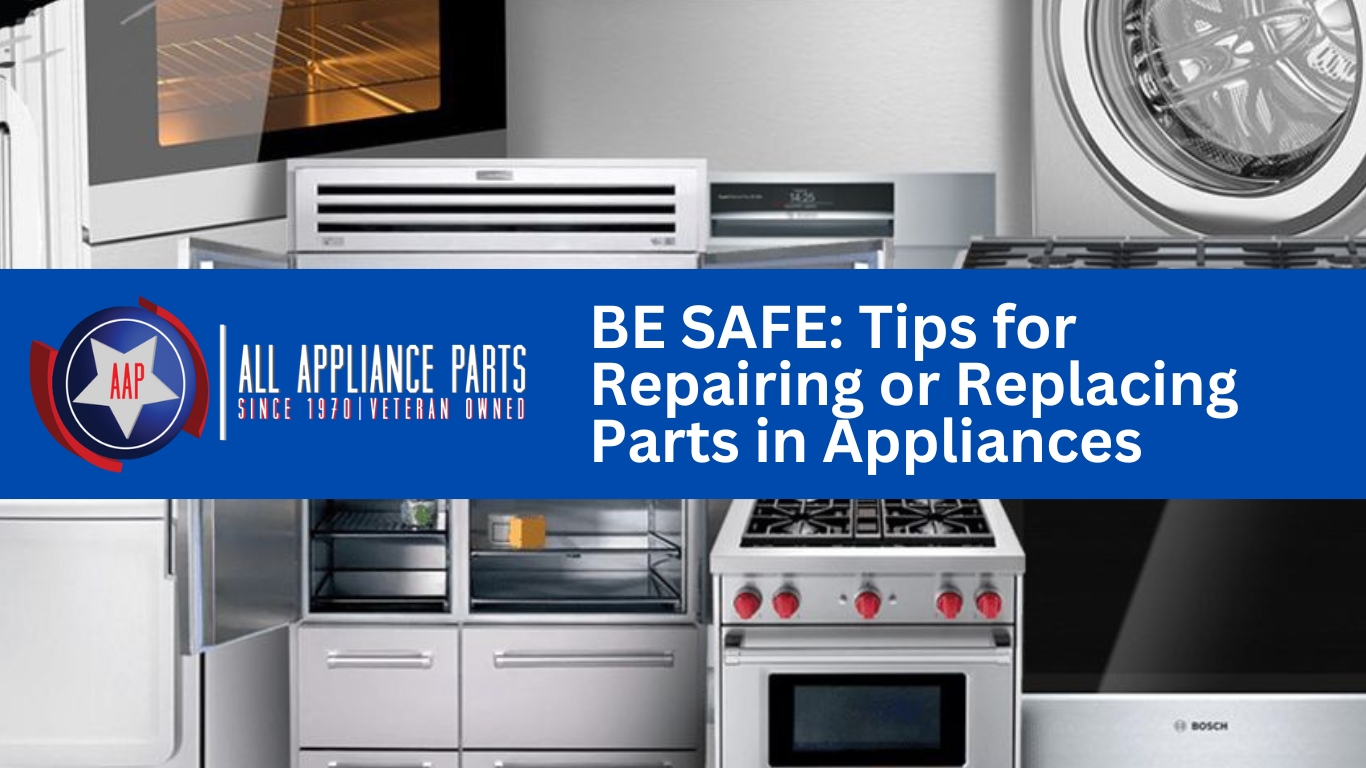When it comes to troubleshooting and repairing major appliances, safety should always be your top priority. Whether you’re fixing a malfunctioning dishwasher or considering a part replacement in your refrigerator, following proper safety measures is crucial. In this article, we will discuss essential precautions to take when working with the electronics of major appliances.
Remember, always disconnect the appliance from any power or gas sources before starting any repair or replacement work. Prioritize Personal SafetyWear appropriate personal protective equipment (PPE) such as safety glasses, gloves, and non-slip footwear to protect yourself from potential hazards. Before working on any appliance, unplug it from the power outlet or turn off the circuit breaker to eliminate the risk of electric shock. If you’re uncertain about the power source, consider turning off the main circuit breaker.
Research and Educate Yourself, consult your manuals!
Read the appliance’s user manual thoroughly to understand its structure, functions, and safety precautions specific to the model. This will help you familiarize yourself with the appliance and ensure you are aware of any potential dangers. Check Online Resources, utilize reliable online resources, such as manufacturer websites, forums, and tutorials, to better understand the appliance and its repair process. You can often find step-by-step guides and videos that provide valuable insights.
Gas Appliances
Safety Shutoff Valve
If you’re working on a gas appliance, always locate and turn off the gas shutoff valve before starting any repairs or replacements. This is crucial to prevent gas leaks or potential fire hazards.
Ventilation
Ensure proper ventilation in the repair area when working with gas appliances to prevent the accumulation of harmful gases.
Take Precautions with Electronics
Capacitor Discharge
When dealing with electronics, discharge capacitors to avoid electrical shocks. Capacitors can store a significant amount of electrical charge even after the appliance has been disconnected from the power source.
Grounding
Ground yourself and the appliance by using an anti-static wrist strap or touching a grounded metal object. This helps prevent damage to sensitive electronic components and reduces the risk of electrostatic discharge.
Use the Right Tools
Quality Tools
Invest in good quality tools specifically designed for appliance repairs. Using the appropriate tools will enhance both safety and efficiency during the repair or replacement process.
Insulated Tools
When working with electrical components, ensure that your tools are insulated to reduce the risk of electrical shock.
Know Your Limitations
Call a Professional
If you’re unsure about your skills or lack experience in appliance repairs, it is advisable to seek professional help. Complex repairs may require specialized knowledge and equipment, and attempting them without the necessary expertise can be dangerous.
Repairing or replacing parts in major appliances can be a rewarding experience, but it’s vital to prioritize safety at all times. By following the precautions mentioned above, you can significantly reduce the risk of accidents, injuries, and property damage. Remember to disconnect the appliance from the power or gas source, educate yourself on the specific appliance and repair procedures, and use proper protective gear and tools. When in doubt, always consult professionals to ensure your safety and the longevity of your major appliances.

